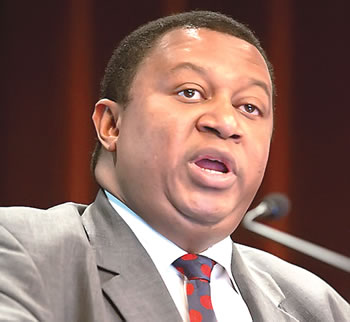Secretary-General, Organisation of the Petroleum Exporting Countries (OPEC) Dr Mohammad Barkindo, says it has never wavered from its core values in spite of the challenges in the oil industry. Barkindo made this known in his keynote address at the Mediterranean Gas event Dinner, at Athens, Greece. Barkindo said that over the last six years, the oil industry and OPEC had been faced with a range of challenges, complex and confounding in equal measure. “Yet, we never wavered from the core values at the heart of OPEC, respect among nations, cooperation, dialogue, and working toward collective solutions. I have no doubt that these values can carry us forward to a brighter tomorrow. In a few weeks from now, I will complete my assignment as OPEC secretary-general, which began six years ago, on Aug. 1, 2016.
“The pace of change in world events over that time has been staggering. These changes have had major ramifications for the energy industry,’’ he said. Barkindo, while reflecting on how best to synthesise many strands and facets of these changes, said an illuminating gateway to explain the trajectory was the World Economic Forum Annual Meeting held in Davos, Switzerland. He said the meeting, which took place from May 22 to May 26, was the first of such meeting since the outbreak of the COVID-19 pandemic. The World Economic Forum in Davos, founded by Klaus Schwab, represents more than a meeting in the popular imagination. It is the platform for and exemplification of the virtues Schwab has extolled for the past half century: an interconnected world with free flow of goods, services, ideas and people contributing to shared prosperity, stability and peace.
“These aspirations have been shaken to the core by events of the last two years. Isolationism and protectionism, once confined to the fringes of political discourse, have received new prominence in elections across the world. Supply chains have struggled to adjust to the realities of the COVID-19 pandemic. Three decades of intensified globalisation risk going into reverse,’’ he said. He recalled that there was a lot of discussion on nearshoring, onshoring and reshoring, as well as on the impact of rising interest rates and an end to the era of cheap borrowing. Barkindo said nothing had challenged the Davos worldview more than the war in Ukraine and the subsequent geo-political fallout. He said certainly, there had been a lot of column inches and boardroom discussions devoted to questions regarding the future of globalisation.
He said that investment patterns that had dominated the last three decades were also being put to the test. The OPEC secretary-general listed the patterns as the idea of corporations opting for cheap offshore manufacturing, slick global supply chains holding costs down and keeping inflation levels low. “The question now is whether the momentum behind globalisation is shifting toward local sourcing. Attention in public discourse has gravitated toward issues such as so-called ‘supply chain sovereignty’ and domestic production facilities. The deployment of sanctions and attempts to sever some countries from the global economic system has seen fractures in geopolitics spill into the economic sphere. And we should not be under any illusion that the attempt to ‘decouple’ economies or reverse globalisation is a product of the 2020s,’’ he said. He further explained that this had been a mantra for many politicians over the last few decades. According to him, many communities have expressed grievances at missing out on the opportunities that come from globalisation, or feel they have been aggrieved as a result of it. (NAN)

